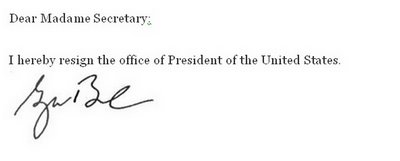
I am not, nor have I ever been, a fan of Cardinal Christoph Schönborn, Archbishop of Vienna. After this week, however, I may have to cut the clever beggar a bit of slack. It's possible—just possible—that he just out-maneuvered the slick operators of the Vatican with a slick operation of his own.
Schönborn probably fancies himself as one of the Church's papabili—the contenders for St. Peter's throne in the next papal conclave. He has devoted a lot of time to speaking out on the issues of the day, polishing his pastoral reputation, and even has a fan club devoted to him and his career. Unsurprisingly, given that the Catholic Church's stance on biological science necessarily embraces a form of theistic evolution (it wouldn't do to leave God out of the equation), intelligent design creationism has attracted a following among its prelates. Schönborn happily became an apologist for ID in 2005 when he published an editorial titled “Finding Design in Nature” in the New York Times. It was widely suspected that the Discovery Institute had ghost-written the cardinal's editorial, for the institute's fingerprints were all over it.
The editorial and Schönborn's subsequent book, Chance or Purpose?, were part of a campaign to walk the Church back from the earlier statement of John Paul II that evolution was “more than a hypothesis.” Inconvenient, that. Embracing evolution as scientific fact is more than conservative Catholics can stomach. As they are in the ascendant in Church ranks, Schönborn and his rivals seek ways to garner their support. Intelligent design offers them a refuge from godless evolution, so they shout their hosannas as they clutch it to their bosoms.
However, the Roman Catholic Church has a lot more on its plate than the hyped-up controversy over evolution versus creationism's flavor of the week. The ongoing scandal of child-molesting priests and the Church's weak response to it is a problem that doesn't seem to be going away. While Church apologists can point to other offenders and yell, “Look over there!”, most people don't fall for it. When a self-appointed arbiter of morality is caught cheating, the blatant hypocrisy is an irresistible media attraction.
Here Cardinal Schönborn has staked out the high ground, distinguishing himself from his head-in-the-sand colleagues. European Catholics (and others) have given Schönborn a lot of credit for his vigorous pursuit of justice for the victims of clerical child abuse and sanctions against the perpetrators and those who abet them. He recently criticized his colleague, Cardinal Angelo Sodano, for the latter's Easter Sunday homily, which contained a sentence addressed to the pope: “The people of God are with you and do not allow themselves to be impressed by the petty gossip of the moment.”
The remark was widely interpreted as dismissing criticisms of the pope's conduct of child-abuse allegations within the Church. Schönborn dared to suggest that Sodano's words were ill-chosen. The Austrian Kathpress reported that Schönborn claimed that Sodano had done “massive harm” to victims of clerical abuse by dismissing as “petty gossip” the criticisms of the Church for not acting more vigorously to rectify matters. “The days of cover-up are over,” Schönborn said.
Whereupon the Vatican summoned Schönborn to Rome so that he could apologize in person to Benedict XVI for the terrible things the cardinal had said. You see, Sodano had been effectively quoting the pope himself when he borrowed the “petty gossip” phrase for his Easter homily. In a Palm Sunday address, Benedict had similarly denounced criticisms as gossip. The Vatican issued a statement in defense of Sodano that made the point that he was following the pope's lead. Sodano's remark “was taken literally from the pontifical homily of Palm Sunday and referred to the ‘courage that does not let itself be intimidated by the gossip of prevalent opinions.’”
Schönborn had effectively stuck his thumb in the pope's eye. It was therefore necessary to treat the world to the spectacle of the Austrian cardinal abasing himself before Benedict and begging for the pope's forgiveness. The cardinal was forced to “clarify” his remarks, lest they be taken as critical of the Holy Father. Schönborn did not disappoint.
One could be forgiven for assuming that this public censure means that Schönborn is now spoiled goods, his dreams of the papacy irrevocably beyond his reach. But I suspect such a conclusion is premature. In fact, I suspect Schönborn knew exactly what he was doing and was not at all surprised by the reaction. I could be wrong, of course, but the Roman church is a kind of meritocracy in which only the most subtle campaigners and manipulators rise to the top.
It is almost inconceivable that Cardinal Schönborn did not know the content of the pope's Palm Sunday homily. Therefore he must have recognized the antecedents of Cardinal Sodano's Easter diatribe. Nevertheless, Schönborn sought out the Austrian press and gave them some acerbic comments. I wonder: Was he thinking of Galileo when he did that?
Galileo is the Church's most famous victim, forced to abjure belief in a heliocentric solar system and confined to house arrest for the last years of his life. The Church had permitted Galileo to treat heliocentrism as an amusing hypothesis, but not to teach it as reality. He went too far—in the opinion of the Church fathers—when he published his Dialogue Concerning the Two Chief World Systems. The three-cornered dialogue features Salviati, who presents the Copernican world view; Sagredo, who is initially neutral, waiting to be persuaded by argument and evidence; and Simplicio, defender of Ptolemy's geocentric system. As penned by Galileo, the debate is a rout. The simple Simplicio is humiliated and wise Sagredo throws in with Salviati.
It was rather unfortunate that, in the course of the dialogue, Simplicio gives voice to arguments that were favored by Pope Urban VIII. The pontiff was not amused to discover that Galileo was putting his words in the simpleton's mouth. Bad things immediately followed.
I don't want to over-extend the parallel, but Schönborn is a clever rascal. These days, you can't become a cardinal unless you're a survivor in the Vatican's internal politics. (In the old days, you just had to be one of the pope's “nephews,” born of one of his mistresses.) By placing himself in mild opposition to the pope, and receiving a disproportionate dressing-down, Schönborn is now in an interesting position. Benedict XVI is an old man (83 last April) and was elected as a transitional pope after a very lengthy papacy. There is no clear choice for his successor and no one stands out from the crowd. If Benedict does not manage to resolve the continuing scandal of clerical sex-abuse of children, he may be deemed a failure in the eyes of the world and—even more important in terms of papal succession—in the bloodshot eyes of the red-robed cardinals..
That would make the College of Cardinals nervous indeed about electing a successor with too many ties to the old order. While fidgeting about, waiting for some manifestation of the Holy Spirit to whisper the next pope's name in their ears, the cardinals might very well look to someone clearly separated from the policies of Benedict XVI.
Now who could that be?
























